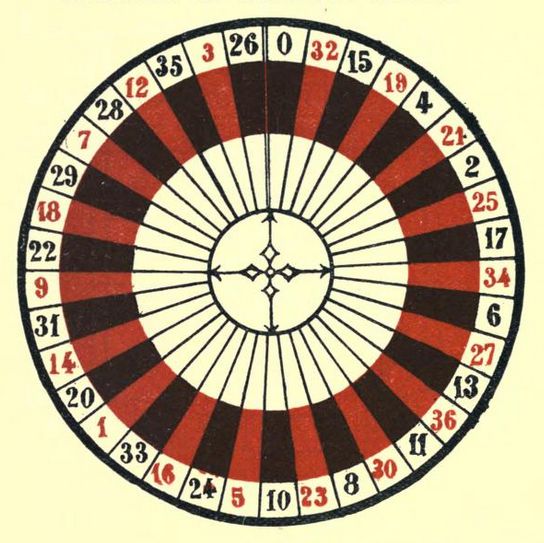|

"Not my job."
The #1 cause of 600+ deaths at the
Iroquois Theater fire in 1903 Chicago was that dozens of people gambled that someone else would address the problem. William
Sallers, Iroquois fireman, was one of those. In his defense, he did discuss the theater's woeful fire response capacity with a
fire department captain, who in turn discussed it with a battalion chief, who took his seat at the roulette table by failing to take it to the Chief.
There were no legal protections for whistle
blowers in 1903 and large advertising expenditures gave the theater Syndicate power with newspapers but another man than Sallers might have
fought harder to bring the situation to the attention of authorities. The sad truth is that Sallers or his immediate superiors in the
fire department could have marched into Chief Musham's office, together or separately and said, "There's something you need to know about the new
Iroquois Theater." There is no way to prove it but my gut feeling is that curmudgeon though he was, Musham would have
listened and acted. He had the ear of Mayor Harrison who a few weeks before had tasked the city council with revising the
city's fire ordinance so presumably would have been a receptive ear. Instead, all involved put the lives of nearly two thousand people on a bet that
fire would not get started at the Iroquois before the theater was properly equipped.
Fireman Sallers: facts and speculations
Chicago regulations in 1903 required that a fireman, approved by the fire
marshal, be present during theater performances. At the Iroquois, the house fireman, recommended by
assistant fire marshal
John Campion, was a former Chicago firefighter named William C.
Sallers (c.1864–1917).* (Another applicant for the
position had been the
son of fire marshal Musham,
who withdrew his application to take a job with the
World's Fair in St. Louis.)
Sallers would describe himself as a retired fireman for
the rest of his life, indicating it was something he took pride in — despite the damage to his
name and reputation for fifty days in newspapers throughout the country.
The son of German immigrant, Henry Sallers, William
was a Chicago fireman until at least 1900, though in the 1900 U.S. Census he reported not having
worked for the prior twelve months. His job as
the house fireman at McVicker's Theater was
between 1900 and 1903. He married Augusta "Gussie" Rabe (1880–1938) a month
before the Iroquois Theater fire but the marriage failed by 1907 and she remarried. He continued
to report "fireman" as his occupation until 1906
and "retired fireman" from at least 1910 until his death in 1917.
Based on the minimal information I've learned about William, I suspect he may have been an introvert.
Personable enough to win a job
recommendation from assistant chief John Campion, but not valued enough as a fire fighter for
Campion to want to keep him in a Chicago
firehouse. The department's lack of concern about the Iroquois makes clear that the fireman's
job there was not deemed highly important and
Sallers was only forty-five when he went to work at the Iroquois. Not yet old enough or with
the department long enough to be rewarded with a
semi-retirement position. Instinct tells me Campion would not have furloughed a good
firefighter to a watchman's job and that something was amiss with Sallers firefighting,
health or interpersonal skills. The Iroquois assignment was a face-saving
jettisoning.
Sallers got caught in a situation beyond his understanding. Though he didn't
try as hard as he could have to alert authorities about the dangers at the Iroquois,
at least he did try. He stuck his neck out, albeit carefully. That's more
than can be said of anyone else who knew the Iroquois was a fire trap and was in a position
to share their knowledge with someone who could do something about it.
Perhaps the Grand Jury recognized it because they exonerated Sallers on February 18, 1904.
|
|
Theater fireman's job
According to city ordinance, Saller's job was to
verify the installation and operability of fire
apparatus at the theater. There was no system in
place, however, with which he could force Iroquois
management — the folks who signed his paycheck — to
purchase said equipment, or contract for its
installation. According to John Campion, Sallers had
been fired from his former position as fireman at
McVicker's Theaer
for having been overzealous. No surprise then that he was cautious about what he
said to Iroquois management as to the inadequacy of
six tubes of Kilfyre powder as the sole fire-fighting equipment in the theater,
or the lack of water plumbed to standpipes, or the nonfunctioning roof vents over
the stage, or the absence of fire axes, fire hooks or a fire alarm.
Grand Canyon size communication gap
Theoretically, Sallers reported to fire chief
Bill Musham
but both Musham and Sallers viewed it that Sallers
was an employee of Iroquois Theater management and only accountable to them.
Not only did Sallers never send a report about the Iroquois to Musham, or meet with
him; reportedly it did not occur to man that such direct communication was necessary.
Musham thought it was up to the building department
to arm-wrestle theater owners; Sallers didn't know
whose job it was, but he wasn't going to become
unemployed again for making a todo about a theater's poor fire preparedness. In a
letter to the Grand Jury, Sallers described having
called McVickers Theater's inadequate fire prevention
equipment to the attention of Musham and of Musham
having told him to take it up with McVicker's
management.†
As an armchair quarterback, the gap in the chain of
command seems Grand Canyon size, but in 1903 it took
the Iroquois fire for Chicago to see it.
Perfect Storm in the making
Sallers wasn't altogether silent about the Iroquois
situation. He expressed his concerns to the captain
at the firehouse on Dearborn street, the one closest
to the Iroquois,
Captain Jennings, who got the message, loud and clear. Jennings later
testified that after touring the Iroquois he told
Sallers, "If this thing starts going, they will
lynch you."
To his credit,
Jennings did not bury the information. The man with
the disaster shovel was his boss, battalion chief,
John J. Hannan.
When Jennings took the matter up the chain, Hannan,
according to his own later remorseful admission, did
nothing, even though his own inspection of the
Iroquois corroborated the opinion of Sallers and
Jennings as to the theater's inadequate fire protection. Like Musham, Hannan thought it was the
building department's job to close firetraps.
In cinema or novels, a man with Jennings or Hannan's
knowledge might have thundered into Chief Musham's
office or become a
whistle blower and gone to the police or media. In
real life, we should shower whistle blowers
with accolades, even when we disagree with their
revelations, because the Iroquois Theater fire is
what you get if they're are silenced.
|

|
The big gamble
For five weeks, several Chicagoans who were in a
position to have prevented the Iroquois disaster instead spun
a roulette wheel, all of them with their souls anted
on the hope that a fire would not break out at the
Iroquois
 before it was fixed, by someone. Sallers
patrolled the theater (paying particular attention
to the basement where he'd once found evidence of
stage workers smoking cigars), while waiting for
Iroquois management to get around to having a water
tank installed on the roof top, making sure the standpipes were
plumbed, and fixing ceiling vents above the stage. The building
department waited for the city council to act on
George Williams' report that Chicago theaters were
firetraps. The city council pushed the report to the bottom of
their task list, knowing any legislative action would bring a
hailstorm of vote-threatening controversy. Thomas Noonan, Iroquois
business manager, waited for his employer to get
around to installing an alarm. Chicago firefighters, Jenning and
Hannan, waited for all of the above. The fire department waited for a resolution between insurance underwriters
and Mayor Harrison that would determine whether Musham would remain
on the job as fire chief.
before it was fixed, by someone. Sallers
patrolled the theater (paying particular attention
to the basement where he'd once found evidence of
stage workers smoking cigars), while waiting for
Iroquois management to get around to having a water
tank installed on the roof top, making sure the standpipes were
plumbed, and fixing ceiling vents above the stage. The building
department waited for the city council to act on
George Williams' report that Chicago theaters were
firetraps. The city council pushed the report to the bottom of
their task list, knowing any legislative action would bring a
hailstorm of vote-threatening controversy. Thomas Noonan, Iroquois
business manager, waited for his employer to get
around to installing an alarm. Chicago firefighters, Jenning and
Hannan, waited for all of the above. The fire department waited for a resolution between insurance underwriters
and Mayor Harrison that would determine whether Musham would remain
on the job as fire chief.
They let it ride until December 30, 1903
The roulette wheel stopped spinning around 3:30 pm
December 30, 1903. While trying to fling Kilfyre
(baking soda in a tube) at a fire that in minutes
raced a hundred feet over his head, Sallers
repeatedly shouted, "pull the box!" (So either his
building patrols had not revealed to him that the
Iroquois was not equipped with an alarm or he
wanted someone
to go outside and find an alarm on the street. How could he not have
known there wasn't a fire alarm at the theater?)
Twenty minutes later, all the players — Musham, Campion, Jennings, Hannan, Sallers, Davis, Noonan, the city
council, and Mayor Harrison — saw the horrific results of their gamble.
Then began the next phase of humans behaving badly
as elected officials, civil servants, theater owners and employees looked for someone to blame.
|
